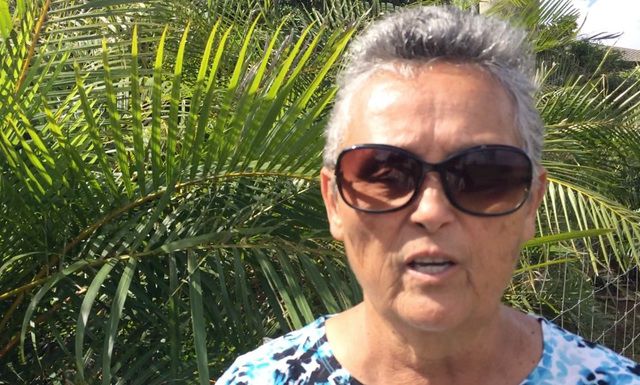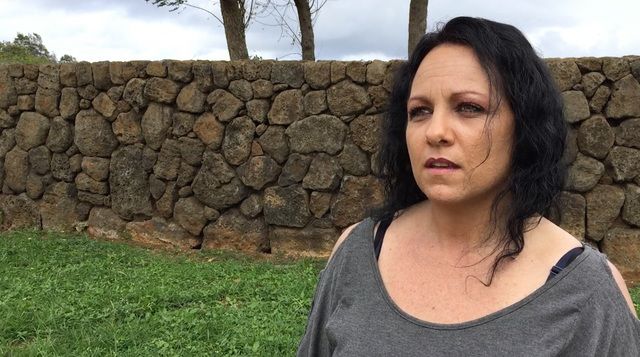KILAUEA — An heir to kuleana land in Kilauea said the pono thing for Mark Zuckerberg to do was drop several lawsuits that could have potentially forced thousands of Native Hawaiians and kamaaina to lose inherited land. “The bottom line
KILAUEA — An heir to kuleana land in Kilauea said the pono thing for Mark Zuckerberg to do was drop several lawsuits that could have potentially forced thousands of Native Hawaiians and kamaaina to lose inherited land.
“The bottom line is Hawaiian ownership of land is not ‘I own 10,000 square feet.’ It’s ‘we own the land,’” said Valerie Ornellas, an heir to land on property owned by Zuckerberg, the founder and CEO of Facebook. “We need to go back to that because that’s what’s right.”
Zuckerberg took that message to heart.
On Friday, in a guest commentary provided exclusively to The Garden Island, Zuckerberg announced he was “dropping our quiet title actions and will work together with the community on a new approach.”
In the letter, Zuckerberg expressed regret for filing eight quiet title lawsuits on about a dozen parcels of kuleana land on his 700-acre estate in Kilauea.
“We understand that for Native Hawaiians, kuleana are sacred and the quiet title process can be difficult,” he wrote. “We want to make this right, talk with the community, and find a better approach.”
On Dec. 30, three companies owned by Zuckerberg — Pilaa International LLC, Northshore Kalo LLC and High Flyer LLC — filed lawsuits involving over 100 people who have some claim to kuleana land on about a dozen parcels on Zuckerberg’s property, according to court records.
Kuleana lands are parcels granted to Native Hawaiian tenant farmers between 1850 and 1855, according to the “Ua koe ke kuleana o na kanaka.” The land is inherited by descendants of the initial buyer with or without them knowing.
Though she was happy to hear about Zuckerberg’s decision to drop the lawsuits, Shannon Buckner has yet to hear from Zuckerberg or his representatives about the matter.
“He should talk to us, the heirs themselves,”said Buckner, an heir to a three-foot by three-foot parcel of kuleana land worth about $500. “Come to the table and talk to us face to face and work this out together. He’s working with everybody else except for us, and we’re the main people that he should be talking to right now. All we’re getting by is what we’re getting from the newspaper.”
Zuckerberg said he and his wife Priscilla were influenced to reconsider the lawsuits after hearing an outcry from the community and learned about the cultural and historical significance of the land.
“The land is made up of a few properties in Waipake, Pilaa, and several kuleana within them,” he wrote. “As this community knows, the history of this land is complex. Many of you have shared your families’ stories, and we want to honor their history.”
Keola Worthington, an heir of kuleana on Pilaa, responded to Zuckerberg’s statement as “cheap talk.”
“I think after the statement … I think he’s still going to move forward,” Worthington said. “If you tell the people that he’s not going to do it, and everybody thinks he’s not and they stop doing the paperwork and stop doing their research, they’re going to be more behind.”
Heirs ought to continue to be wary and continue to fight, Worthington said.
“They should still continue and prepare their records; trace their lineages to their land,” he said. “When they find out it’s their land, go down there, plant a tree, go camping and take possession of your land and keep the access. Go back to your land and access it.”
Rep. Nadine Nakamura, (D-14 Hanalei, Princeville, Kilauea, Anahola, Kapaa, Wailua), said she’s glad the Zuckerbergs are being responsible stewards.
“I want to make sure that we follow up on the quiet title laws to make sure it can be fair to all participants,” she said. “I want to do my homework and learn more about the quiet title process and what the problems are being faced on all the islands. It’s an ongoing concern, and it gives us an opportunity to address those concerns.”
Rep. Kaniela Ing (D-11, Kihei, Wailea, Makena), who is introducing a bill next week regarding a law change of quiet title land suits, said the Facebook CEO is “doing the right thing.”
“To Mark Zuckerberg … you now have an opportunity to set the bar for what being a good neighbor and an ally to indigenous peoples looks like,” Ing said in a statement. “This is a major victory for Native Hawaiians and everyday folks everywhere. Remember this feeling when you feel powerless.”
The right path is to sit down and discuss how to best move forward, Zuckerberg said.
“We will continue to speak with community leaders that represent different groups, including Native Hawaiians and environmentalists, to find the best path,” he said. “Beyond this process, we are also looking for more ways to support the community as neighbors. We have contributed to community organizations and will continue to do so. We work with wildlife experts to preserve endangered species. We hope to do much more in the future.”
In 2014, Zuckerberg purchased 700 acres of Kilauea land for about $100 million. The Pilaa Beach property, which consists of about 390 acres, was bought from Pflueger Properties, a partnership owned by local car dealer Jim Pflueger. The other piece of land, Kahuaina Plantation, is 357 acres of a former sugar cane plantation.
Zuckerberg said he and his wife wish to preserve the land from major development, and large portions of the land will be maintained for farming by the community.
“We are committed to being good stewards of this beautiful land,” he said. “We hope to build a home for our family here.”
The parcels in question emerged during land reforms that the Kingdom of Hawaii pursued in the 1800s called “the Great Mahele.” Until then, no individual owned land — it was collectively cared for and used.
The reforms allowed commoners to claim title to land they lived on and farmed, usually about a half-acre.
But only a small share of Hawaii’s land — some 28,000 acres — ended up in the hands of commoners. Millions of acres went to the king, other royals and the government.
In the decades afterward, large sections of land passed into the hands of sugar plantation owners. The plantations, and other landowners who purchased the properties after sugar growing became unprofitable, frequently used the quiet title process to buy out descendants of the commoner families, whose land was interspersed among the larger holdings.
Kilauea Sugar Co. previously owned Zuckerberg’s land.
Moses Haia, executive director of the Native Hawaiian Legal Corp., an agency that frequently represents people on the receiving end of quiet title lawsuits, welcomed the tech billionaire’s move.
“We appreciate Mr. Zuckerberg’s sense of justice and his desire to truly understand the impact that the introduction of private property has had on the indigenous people of Hawaii,” Haia said. “We are encouraged by his desire to engage in a process intended to achieve the true intent of the Mahele.”
•••
The Associated Press contributed to this story.




